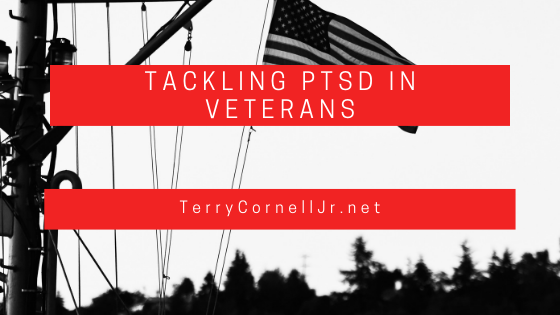Many combat veterans return home following deployment and experience post-traumatic stress disorder or PTSD. The condition occurs when an individual lives through a life-threatening or traumatic experience and varies in severity. As a result, past situations invade their civilian lives. Veterans may suffer anxiety, depression or guilt secondary to the events that occurred on the battlefield. They might suffer from flashbacks or nightmares of specific events. There are many techniques that veterans might consider using to help them through troubling moments.
Physical Activity
Engaging in some type of exercise or sport is the ideal way for veterans to deal with excess adrenaline. While working out, the body releases endorphins, which alleviate pain and elevate mood. When exercising, turn your attention to physical actions. Focus on the feeling when your feet hit the ground with each step while running. Control your breathing rhythmically.
Other activities that help veterans focus on body movement include dancing, playing basketball or swimming. Learning martial arts, going rock climbing or lifting weights are other activities favored for diverting focus. Being outdoors is often rehabilitative. Perhaps go camping, hiking or white-water rafting.
Self-regulation
When agitated or anxious moments develop, calm yourself using self-regulation. Begin inhaling and exhaling slowly. Concentrate on each breath. Perform the technique for at least 60 breaths.
Environmental noises, sounds and locations often act as triggers for combat veterans. However, they might consider using the environment to change the situation. Think about what was calming when deployed. Some might have listened to favorite music or enjoyed looking at family photos. Consider what activities brought joy before deployment. Use these events to retrain your brain.
Support Network
Veterans living with PTSD often can not share their thoughts, feelings and experiences with others. However, by connecting with other combat veterans, men and women no longer need feel alone in their suffering. Try to locate a PTSD support group at your local VA or within your community. Maybe consider helping other veterans by performing volunteer work.
Ground Yourself
If experiencing a flashback or a nightmare that takes you back to the battlefield, force yourself back to current reality. Look around while telling yourself the location is safe and does not pose a hazard. Notice the smells and sounds at the moment. Pinch yourself, splash cold water on your face or use a stress ball.
